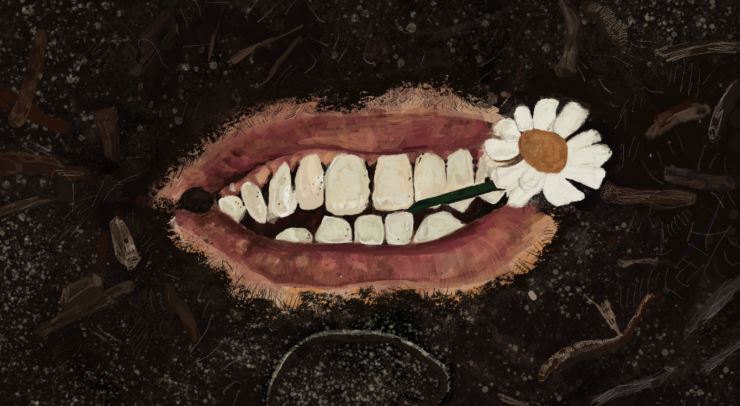Movement seeks dialogue on issues that perpetuate rape culture, sexual assault
On Sept. 18, a crowd of around 200 women took to Bank Street, defiantly reclaiming their right to express themselves without fear of retribution. Donning fishnet stockings, crop tops, bikinis, and some going topless, SlutWalk 2016 heralded a strong political message.
The opening ceremonies were filled with speeches and supportive remarks, complemented with giveaways of swag like pins, posters, safe sex supplies, and consent colouring pages.
The march was organized by Kate Forman, who became a victim of sexual assault when they were seven years old.
“We are here to be together,” said Forman, underscoring the real driving force behind this gathering. “I am not ashamed of my identity.”
Leila Moumouni-Tchouassi, a student of the Faculty of Social Sciences at the University of Ottawa, has been a part of Ottawa’s chapter of the SlutWalk from the start and chose to participate as a guest speaker for this year’s festivities.
Moumouni-Tchouassi believes that women deserve the freedom to live their lives in the way they please. “To portray oneself is the basic right of every woman,” she said.
She also addressed how this is a problem more prevalent to the student community.
“I think it affects students in that we have a very big rape culture on our campus and it’s not something that’s been properly addressed.”
Moumouni-Tchouassi went on to say that in Canada issues like racism, sexism, and rape culture easily get silenced by the fact that we live in a country that offers a very safe environment compared to many others.
“I think that very often, a lot of the issues that our society faces, in Ottawa we don’t speak about these problems. (They’re) silenced by the fact that we’re in Canada … and to allow yourself to buy into that is allowing people to find better ways to creatively oppress people.”
Moumouni-Tchouassi explains that this can be a dangerous mindset, as it leads to the suppression of rape victims.
“There are people being oppressed everyday in Canada whether people want to speak on it or not. These things are really important (as is) making sure that we continue to have a conversation about how to empower women and that people feel safe in this city.”
The roots of SlutWalk can be traced back to January 2011 when Toronto police Const. Michael Sanguinetti held women accountable as victims of sexual assault by saying, “women should avoid dressing like sluts in order not to be victimized.”
His comment gave rise to a series of marches, starting in Toronto, where women dressed in clothing that society deemed “slutty” in an act of defiance against these sexist remarks. This resulted in a rise of similar gatherings across various cities in the effort to raise awareness around the prevalent rape culture and sexual violence that exists in Canada. Subsequent rallies have been held across the globe, from London, England to Rio, Brazil.
Yamikani Msosa, a public education coordinator and support worker for the U of O’s Student Academic Success Service, said the Ottawa SlutWalk is not only a march for women standing in solidarity for their rights, but it is also a movement challenging the misconceptions regarding rape culture.
“The number one myth that we have is a person, what they wear, is what leads them to be sexually assaulted,” said Msosa.
At the end of the day, SlutWalks, like the one held on Sept. 18, serve as a platform that helps women find different and creative ways to express themselves and spark dialogue about issues pertaining to sexual assault.




